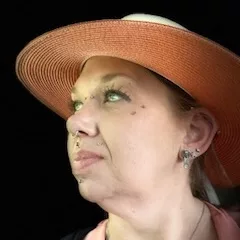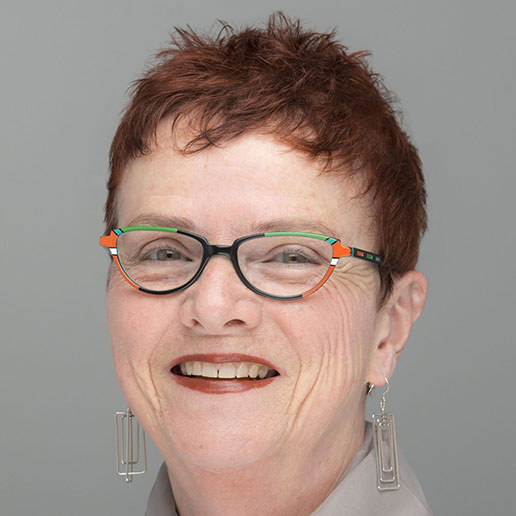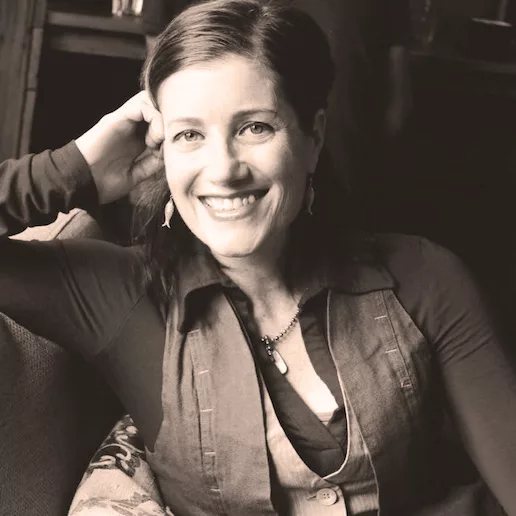Coordinator, Maine Prisoner Advocacy Coalition
she/her
Wendy Allen is a 45 year woman who battled Substance Use Disorder and is in long term recovery. She is formerly incarcerated, and is living proof that recovery is possible. She currently holds many hats in the community. She is a grant writer and coordinator with Maine Prisoner Advocacy Coalition, the Young Adult Diversion Program lead for Restorative Justice Institute of Maine, a Recovery and Re-entry Coach, as well as a Peer Support Specialist for Penobscot Family Recovery Court with Maine Prisoner Re-entry Network. She recovers loud for those suffering in silence. She is a wife, mother and grandmother that enjoys music, crafting and spending time with her family.
Wendy is also a Facilitator for Maine Humanities Discussion Projects and winner of the 2022 Maine Humanities Facilitator Prize.

Talks
Dare to Dream
This presentation is focused on Substance Use Disorder and Allen’s heart wrenching journey battling this disease, what led up to it, and how she has sustained a life in recovery. This is an eye opening presentation around the affects of internal and external stigma, how SUD affects one's thinking, actions and behaviors, and the struggles to survive while living a life in darkness.
This is a “through the lens” presentation that educates communities on the often unspoken truth of a person suffering with SUD, how families and communities are affected, what helps and hurts the one suffering, and how they think and feel before, during and after active use. It touches on how her incarceration and substance use affected her children, and sheds light on how easily this disease can destroy a life and the beauty of recovery.
Substance Use Disorder is taking the lives of our people every day. This strong presentation proves that recovery is possible, if they only dared to dream.
Founder and Director, Franco-American Women’s Institute
she/her/elle
Rhea Côté Robbins was brought up bilingually in a Franco-American neighborhood in Waterville known as the South End. Côté Robbins is the author of creative nonfiction, memoirs titled, ‘down the Plains,’ and Wednesday’s Child, winner of the Maine Writers and Publishers Alliance Chapbook Award.
She is editor of Canuck and Other Stories, an anthology of translations of early 20th century Franco-American women writers who wrote about their immigration experience. Her poems and essays have appeared in many publications. She is the founder and director of the Franco-American Women’s Institute, FAWI.

Talks
Who Gets To Tell Story?
Telling or hearing story while conscious of the human ecology—listening to story justly with social consciousness of equality. I would like to define what qualifies as “story.” I believe essentially that every person, artifact, ritual, etc. is story. Everything we know comes to us via story; we are surrounded by story. Story is the microcosm of the macrocosm. Who, in the cultural milieu, gets to tell story?
Where Are the Franco-American Women in Your Community?
Using a Franco-American woman’s search and research as a model to address the issue of what, if any Franco-American woman wanted to know about Franco-American women and their history, where would they begin if they were not told or not allowed to know and value the contributions of the Franco-American women’s history? Who are the Franco-American women in the state of Maine in regard to the history of ethnic populations? What makes the Franco-American culture worth the focus in regard to ethnic diversity? The answers to these questions remain unknown in the history of Maine. Deeper review of the lives of the Franco-Americans, present and past, reflects this hidden history.
Franco-American Women, Suffrage and Political Activity
What was Camille Lessard Bissonnette doing to promote women’s suffrage in 1910-1911, and what barriers did she face? What was happening across the border in the QC/Canadian women’s suffrage movement, which started in 1912? And who were the Franco-American women of Maine who served in the Maine State Legislature starting in 1935? The lives of these women illustrate the history of women’s suffrage here, connects the present, and helps us understand how we got here.
Founder and Executive Director, Atlantic Black Box
she/her
Meadow Dibble, Ph.D. is a researcher and antiracist historical recovery advocate organizing to surface New England’s suppressed narratives. In 2018 she founded Atlantic Black Box, a grassroots public history project that empowers communities throughout the Northeast to take up the critical work of researching and reckoning with the region’s complicity in the slave trade and the global economy of enslavement. Meadow serves as Project Lead on the Place Justice project in collaboration with the Permanent Commission on the Status of Racial, Indigenous, and Tribal Populations.

Talks
Whitewashing the Diseased Ship: New England’s Role in the Slave Trade
On August 1, 1819, a majestic Maine-built ship docked at Boston’s Long Wharf, completing a nearly year-long voyage to West Africa and the West Indies that only a few crew members were fortunate enough to survive. When customs officials descended into the hold to examine the precious cargo for which so many had died, what they found instead were clouds of mosquitoes playing host to a deadly yellow fever virus.
This dramatic story features a prominent Yankee sea captain, a tragedy on the high seas, a viral outbreak, a major political cover up, and a conspiracy of silence that has lasted two centuries surrounding New England’s involvement in the slave trade. Following these historical threads into the present day allows us to consider the ways in which our region’s suppressed history of complicity in slavery relates to our current national conversations about racial justice and healing
Hiding in Plain Sight: New England's Complicity in Slavery
New England has long suppressed the memory of its involvement in slavery, just as it has concealed or failed to center the stories of the region’s free and enslaved Black and Indigenous populations. How could we have gotten the story so wrong for so long? This interactive presentation will contrast the cherished narrative of Northern exceptionalism and innocence with recent scholarship that reveals a long history of exploitation with which our communities have barely begun to reckon.
Place Names in Wabanakik/Maine
Place names have a lot to teach us about our history, values, and present-day relationships with one another. Even when these names fade into the backdrop of our lives, they continue to inform our sense of place in subtle but important ways, communicating ideas about who belongs and what matters. Here in Maine, racist and problematic place names have long marred the landscape and continue to impact our communities. By examining trends in toponymy, we can gain insight into whose perspectives have been privileged and, by contrast, whose experiences have been dismissed and forgotten.
In this presentation, participants will gain foundational knowledge about Maine’s place names profile in relation to those of other states in New England and across the U.S. They will also learn to identify problematic place names in their area and develop approaches to understanding the historical context behind them. Together, we will explore ways to make the commemorative landscape more welcoming, inclusive, and reflective of the breadth of experiences of the people who have made these places what they are today.
